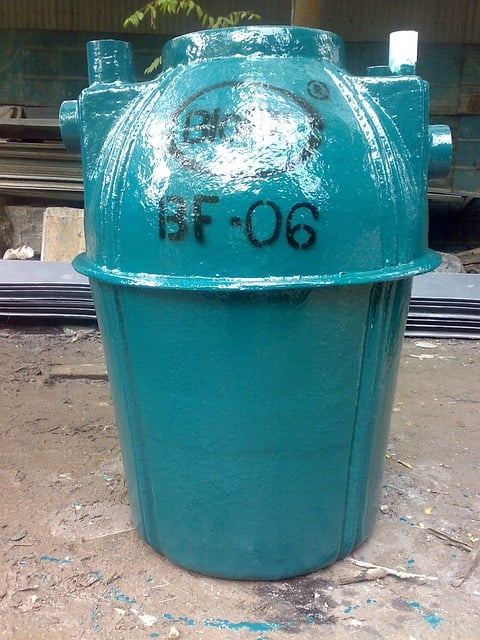A septic system, ideal for areas without public sewer access, treats wastewater through a septic tank (where bacteria break down solid waste) and a drain field (for natural filtration and soil absorption). Effective Septic System Maintenance involves regular pumping (every 3-5 years), inspections (every 3-6 months) by professionals, responsible water usage, and proper plumbing connections to ensure longevity, optimal performance, and avoid costly repairs. Homeowners should address minor issues but complex problems like system failures or blocked lines require licensed septic service providers.
“Discover the secrets to seamless septic system operation with our comprehensive guide. Understanding your septic system’s intricate components and functionality is the first step towards efficient maintenance. Learn how regular practices can optimize performance, ensuring a hassle-free experience.
From identifying common issues to knowing when to call a professional, this guide equips you with the knowledge for proactive care. Implement these strategies for optimal septic system maintenance and enjoy a well-functioning, eco-friendly solution for your waste management needs.”
- Understanding Your Septic System: Components and Functionality
- Regular Maintenance Practices for Optimal Performance
- Troubleshooting Common Issues and When to Call a Professional
Understanding Your Septic System: Components and Functionality

A septic system is a complex network designed to treat and dispose of wastewater from homes and businesses that are not connected to a public sewerage system. Understanding its components and functionality is crucial for effective septic system maintenance. At the heart of the system is the septic tank, where solid waste separates from liquid waste. Bacteria in the tank break down organic matter, reducing the volume of waste. The clarified liquid then flows into the drain field, where further treatment occurs through natural filtration and absorption into the soil. Regular pumping and inspection of the septic tank, along with responsible usage habits, are key to maintaining this crucial system, ensuring its longevity and optimal performance in treating wastewater.
Regular Maintenance Practices for Optimal Performance

Regular septic system maintenance is crucial for ensuring optimal performance and longevity of your septic tank. This includes routine inspections, typically every 3 to 6 months, during which professionals can assess the overall health of the system, verify levels of sludge and scum, and check for any signs of damage or leaks. Additionally, regular pumping of the septic tank, usually every 3 to 5 years, is essential to remove accumulated solids that could disrupt the natural balance of bacteria necessary for efficient decomposition.
Beyond professional inspections and pumpings, homeowners can also contribute to effective septic system maintenance through responsible usage habits. This involves limiting water usage during peak times, avoiding disposal of non-biodegradable materials like plastics, chemicals, and grease down the drains, and ensuring proper connections and sealing of all plumbing fixtures. These practices, combined with regular professional care, will help keep your septic system running smoothly for years to come.
Troubleshooting Common Issues and When to Call a Professional

Septic system maintenance is crucial for preventing common issues that can disrupt your daily routine and cause costly repairs. If you notice any unusual odors, clogs, or slow drains, it might indicate a problem with your septic system. In such cases, troubleshooting should start with checking the visible components, including the pipes, pumps, and tanks, for any signs of damage, corrosion, or leaks. Regular inspection and maintenance, including pumping out the septic tank as recommended by professionals, can help identify issues early on.
While some minor problems may be addressed by homeowners, complex issues like system failures, blocked lines, or damaged pipes often require the expertise of a professional. Calling a licensed septic service provider is advisable when you encounter persistent problems, unexpected changes in water levels, or evidence of system overload. These specialists have the tools and knowledge to diagnose intricate issues, providing tailored solutions for effective septic system maintenance.
Proper septic system maintenance is key to ensuring your home’s waste management remains efficient and environmentally friendly. By understanding your system, implementing regular care practices, and knowing when to address potential issues, you can extend the lifespan of this vital component. Remember, regular maintenance is far easier and more affordable than costly repairs or replacements, so make it a priority to keep your septic system running smoothly.
